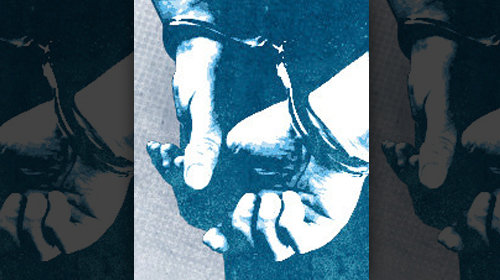
Today, the U.S. has the highest incarceration rate of any country in the world. With over 2.3 million men and women living behind bars, our imprisonment rate is the highest it's ever been in U.S. history. And yet, our criminal justice system has failed on every count: public safety, fairness and cost-effectiveness. Across the country, the criminal justice reform conversation is heating up. Each week, we feature some of the most exciting and relevant news in overincarceration discourse that we've spotted from the previous week. Check back weekly for our top picks.
This week, our focus will shift from legislation to an important new report from the Drug Policy Alliance, "." The report is extensiveÔÇöit runs 64 pages and includes 75 recommendationsÔÇöand pragmatic. It doesn't call for blanket drug legalization tomorrow; instead, it proposes a gradual draw-down (to borrow the metaphor) and new approach to the same goal of minimizing drug use and abuse. Here are a few noteworthy recommendations:
- Shift the focus of the federal drug budget from failed supply-side programs to cost-effective demand and harm reduction strategies. DPA cites the ample research which shows that reducing demand through substance-abuse treatment programming is more cost-effective than supply reduction policies. Sticking with "cost-effective" is generous, really; if your measuring stick is , then supply-side spending isn't really effective, period.
- Raise threshold amounts for what constitutes a federal drug law violation and focus resources on big cases. Stories of people serving for relatively minor drug offenses are far too common. Some federal judges will attest to sentencing to prison for far longer than is appropriate or effective.
- Reform federal drug conspiracy laws. Most of the preposterously long sentences are the result of conspiracy cases; someone plays a small role in a groupÔÇösay, buying small amounts of cold medicine on behalf of a methamphetamine cookÔÇöbut gets sentenced according to the total amount of drug produced or sold. This recommendation should be paired with the one immediately above.
- Expand the mandatory minimum safety valve provision. Currently, a defendant is eligible for the ÔÇöthat is, a judge is allowed to sentence him below the mandatory minimum termÔÇöif he meets , one of which is having one or zero "criminal history points." The idea is to allow judges to sentence first-time defendants to less severe sentences. The problem is that you are over the one-point limit if you've ever been convicted of a crime for which you served , which could mean shoplifting or forging bad checks or marijuana possession or a variety of other petty crimes. It could also have been ten years ago. The point is that people who are relatively low-risk are nonetheless excluded from the safety valve, no matter what the judge thinks.
The other 71 policies run the gamut from policing to drug treatment to federal foreign policy; you should read them all. It won't take as long as you might expect. Reason's Mike Riggs earns a plug for the second week in a row with on DPA's new report.
Here are some other interesting items from the past week:
- Vermont passed a bill to , which the governor is expected to sign.
- ÔÇöthat is, Minnesota employers will not be allowed to consider a job applicant's criminal history until the applicant has an interview or is offered a job. Employers are still free to not hire someone with a criminal history, but at least applicants won't simply have their applications tossed in the trash can before they've had a chance to make a strong personal case for themselves. The law will help more former prisoners find work, which will make Minnesota safer and more prosperous.
- You can review recent activity in state legislatures to reduce prison populations, with contextual information about each state, at our new map.
Learn more about overincarceration and other civil liberty issues: Sign up for breaking news alerts, , and .
